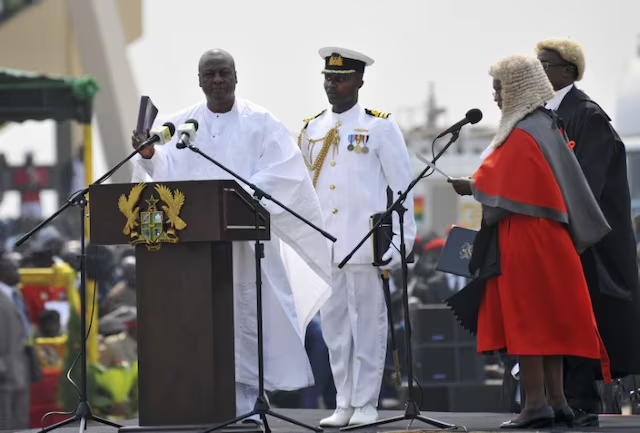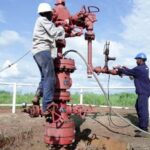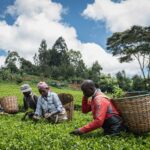Ghana’s inflation has hit 23.8% rising from 23.0% in November last year as the country continues to face its worst economic crisis in decades.
The rising food prices, currency depreciation and cost of living crisis have compounded the woes of many citizens in Ghana, leaving a huge problem for newly sworn in President John Mahama. Inflation continues to rise despite the recent decision by the Central bank to peg the interest rate at 27%.
Mahama was sworn in for a second term on Tuesday, pledging to tackle the economic crisis and bring down the inflation numbers which have risen for four straight months. He faces a daunting task given Ghana’s rising debt profile and economic reforms necessitated by a bailout agreement with the International Monetary Fund, IMF.
In his speech, Mahama said his new economic model would be built around in agriculture and agribusiness, targeting jobs for young people while stimulating the local industry and attracting foreign investment.
- Advertisement -
Apart from the rising inflation, Mahama must also address concerns about the unstable exchange rate which has made life unbearable for many citizens of the country.
As daunting as the task might seem, analysts and some supporters believe that the two-thirds majority in parliament indicates a strong mandate from the people, giving Mahama the backing to take tough decisions and implement credible policies that will improve the livelihoods and regain investor confidence in the economy.










